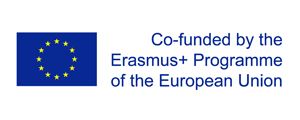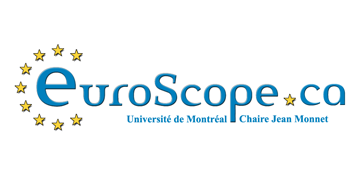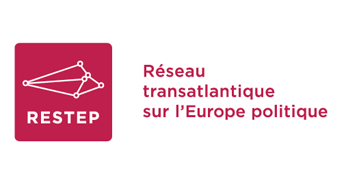RevUE de la conférence d’Éric Ponthieu proposé par Léandre Benoit
In collaboration with the CÉRIUM, the Jean Monnet Centre of Montreal welcomed Éric Ponthieu (Head of Unit of the European Economic and Social Committee) for his conference « Le Pacte vert européen : un modèle pour la gouvernance nationale et régionale du Climat ? » Recalling that Europe is facing a Make-or-Break moment regarding climate governance, Éric Ponthieu discussed some of the implications of the European Green Deal for European policy and its place within international frameworks such as the 2030 Agenda for Sustainable Development.
As Éric Ponthieu first points out, the European approach focuses on designing desired transformations instead of reacting to undesired transformations. To ensure equity and equality for all in this process, social, intergenerational, and international solidarity remain the three pillars of the European Union’s climate strategy. Nevertheless, the speaker reminds us that these desired transformations to address the climate crisis cannot be based only on technological and market approach. Broader structural changes must be put forth, targeting production along with consumption and lifestyle. The European Green Deal seeks to enhance those changes by redefining our vision of economic wellbeing. A vision where economic prosperity is entangled with social equity and environmental preservation.
Observing the recent climate ambitions expressed by Member States, Éric Ponthieu later argues that setting net-0 targets goes hand in hand with concrete short term initiatives and long-term plans. In this perspective, the European Union as a pioneer for establishing structural plans to seek to align short-term policies with long-term ambitions. Indeed, the Energy Roadmap 2050 (2011), the 2030 package (2014) and a clean planet for all (2018) all led the way for the European Green Deal adopted in 2019 which expresses a clear ambition to reach carbon neutrality by 2050.
Looking back at the success of the 2020 package, which achieved the goals of reducing carbon emissions by 20% and increasing energy efficiency and renewable energy production by 20%, Eric Ponthieu raised some intriguing questions. How did the EU reduce its GHG emissions so easily between 2008 and 2020? By offshoring the production of goods to other countries. For Ponthieu, this strategy is problematic because it gives a false impression of success. While carbon production in Europe has decreased, carbon consumption has increased as goods produced abroad produce as much, if not more, carbon.
Noting these challenges, Eric Ponthieu concluded by presenting the European Green Deal in more detail. As the first document presented by the newly formed European Commission in December 2019, the European Green Deal expresses the priority given by the EU to the climate crisis. With this plan, Europe aims to reduce its carbon emissions by 55% by 2030, based on a transformation of the energy sector, which will see the greatest reduction. To achieve these goals, the Pact includes the Fit for 55 plan, a framework that provides a mix of pricing and regulatory mechanisms. It aims to strengthen the carbon market as one of the key strategies for achieving carbon neutrality by 2050.
As for the question of the Green Deal influence on international governance, Ponthieu expressed his desire to see it become a model for other countries. But before thinking about becoming a global model, the next step for the EU is to move from policy development to implementation.












